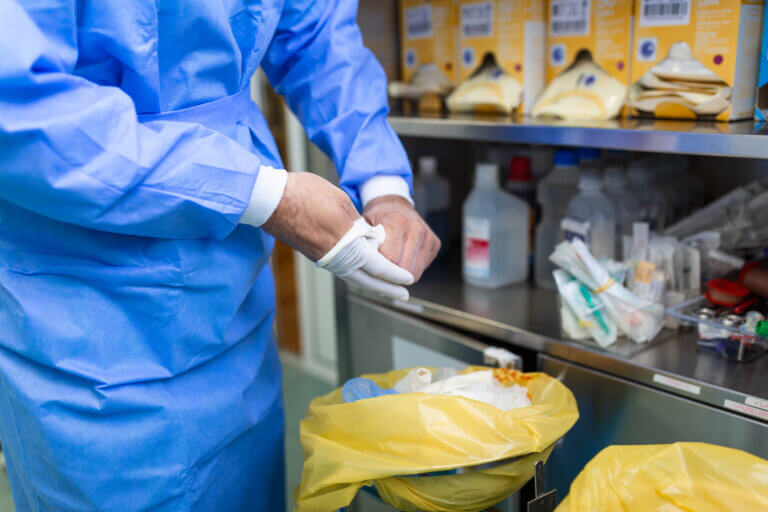In the vast realm of healthcare, one topic often overlooked but of paramount importance is medical waste disposal. From sharp tools to potentially infectious materials, how these items are handled can make a vast difference not only in compliance but in health and safety as well.
The World of Medical Waste Management
Medical waste isn’t just about sharp needles in a sharps container. It encompasses a wide variety of items, all of which need specific handling and disposal methods to ensure safety and compliance.
Defining Medical Waste
Medical Waste Disposal Types
- Biohazardous Waste: Potentially infectious waste that can cause harm.
- Sharp Waste: Needles, scalpels, and other sharp instruments.
- Pharmaceutical Waste: Unused and expired medicastion.
- Red Bag Waste: Biohazard waste items like gloves, swabs, etc.
- Solid Waste: Non-hazardous items like paper, plastics, etc.
Why Regulating Medical Waste Matters
Every piece of waste generated in healthcare facilities, be it a medical office or a large hospital, has specific disposal needs. Regulated medical waste, for instance, requires specialized services to prevent the spread of infectious diseases.
MedPro Disposal: An Industry Leader
One name that stands out in the realm of medical waste disposal services is MedPro Disposal. With an average of 30 years of experience, this company offers medical waste disposal solutions for healthcare providers that are both cost-effective and compliant.
Sharps Medical Waste Services
Sharp tools, especially needles, are a significant source of medical waste. Services for sharps, such as sharps disposal and sharps management, are crucial to ensure that these items don’t end up harming individuals or the environment.
Compliance Training & Certification
Staying compliant isn’t just about disposing of waste correctly. It’s about understanding the regulations. Organizations like MedPro Disposal offer comprehensive medical waste management programs which include training modules and certification services covering everything from OSHA compliance to HIPAA regulations.
Biohazardous Waste Disposal
Biohazard and biohazardous medical waste need special care. Disposal options range from autoclaving, a steam-based method, to specialized landfill methods ensuring the waste doesn’t harm the environment.
The Mailback System
For small to mid-size generators of medical waste, mailback systems include convenient packages that can be filled and sent back for compliant disposal. A perfect solution for medical offices that might not generate large amounts of waste regularly.
Beyond Disposal: Better Solutions for Medical Waste
It’s not just about getting rid of waste. It’s about solutions for medical waste management that look at reducing the amount of waste produced, recycling where possible, and ensuring everything is handled in an environmentally friendly manner.
Specialized Services for Diverse Needs
Whether it’s services for sharps, pharmaceutical waste management, or even document destruction, leading companies offer a full range of services tailored to meet your needs.
Conclusion
Medical waste disposal might seem like a mundane task, but its implications are vast. From staying compliant with OSHA and HIPAA to ensuring the environment remains unharmed, there’s much to consider. With industry leaders like MedPro Disposal offering solutions, healthcare providers can rest easy knowing their waste is handled with the utmost care and expertise.
FAQs
Q1: What is the difference between biohazard and biohazardous waste?
A1: Both terms refer to waste that could be potentially infectious, but “biohazardous” is often used more broadly to include any biological material that poses a risk.
Q2: Why is OSHA compliance vital in medical waste management?
A2: OSHA sets and enforces standards to ensure that employees work in a safe environment, which includes handling and disposing of medical waste safely.
Q3: How frequently should sharps containers be replaced?
A3: It’s vital to replace sharps containers before they’re full to prevent overfilling and potential injury.
Q4: How does the mailback system work for medical waste disposal?
A4: Providers send containers to the healthcare facility. Once filled, these can be mailed back using the provided packaging for compliant disposal.
Q5: Can pharmaceutical waste be disposed of with other medical waste?
A5: No, pharmaceutical waste needs specialized disposal to prevent contamination and environmental harm.
